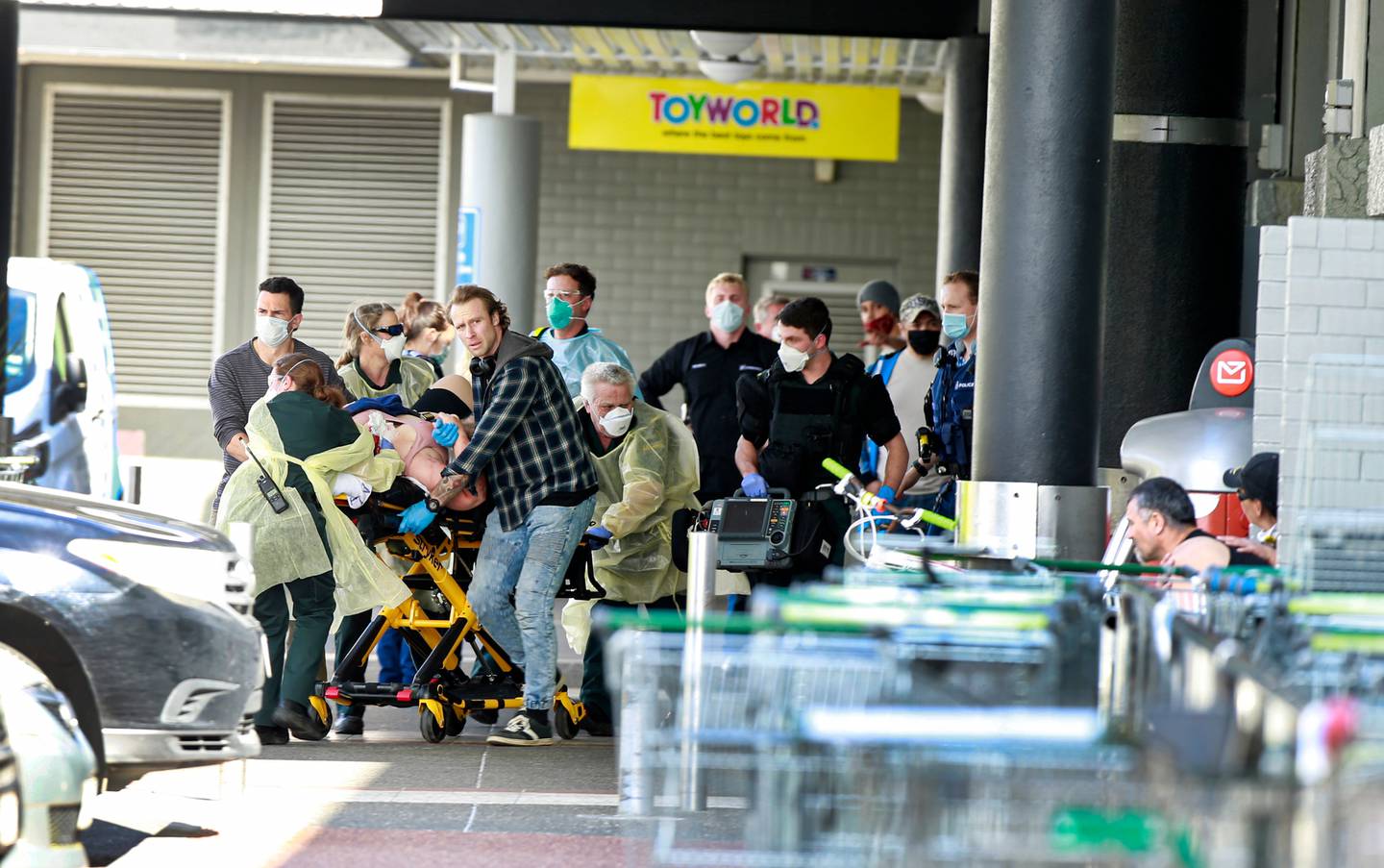This LynMall terrorist isn’t the last, at least not according to the Quran which commands that Muslims fight until there is no more unbelief.

The terrorist attack which injured six supermarket shoppers in suburban Auckland yesterday will not be the last in New Zealand, a terror expert says.
Three shoppers were critically injured, one seriously injured and two moderately injured, in the Isis-inspired terrorist knife attack at a Countdown supermarket in New Lynn Mall yesterday afternoon.
The 32-year-old man believed responsible, who was under court-ordered supervision and also under 24-hour police surveillance following previous incidents relating to violent, anti-Western material and comments, was shot dead by police.
New Zealanders needed to realise there were security agencies overseas with better resources and more legal powers, and even they still could not stop every terrorist attack, Dr John Battersby told the Herald.
“There’s a degree of impossibility involved here, and what we need to do with the legal powers, and the powers and resources of our security agencies, is to try and maximise their ability to get ahead of these things as often as possible.
“But there’s nothing to guarantee it will not happen again – in fact I will guarantee you it’s going to happen again.”
New Zealand’s counter terrorism laws weren’t as strong as many other countries, the teaching fellow at the centre for defence and security studies at Massey University said.
The “imperfect” Terrorism Suppression Act 2002, that was a response to the September 11, 2001 US attacks, had not kept up with developments in international terrorism since.
“So that’s on us, that’s New Zealand’s problem … and [it’s on] successive New Zealand governments, who have been slow to look at terrorism legislation, to study its relationship to overseas events and to try and keep it as current as possible to developments that are happening and could happen here.
“The fact we have a counter terrorism bill dealing with problems that were identified in 2007 and it’s sitting in select committee in 2021 is indicative of the slowness with which New Zealand governments have acted.”
The caveat was that changes put in Labour’s new Counter-Terrorism Legislation Bill, introduced in April after the March 15 terrorist attack Royal Commission and now before select committee, “quite possibly wouldn’t have made much difference”, Battersby said.
The bill would make it a criminal offence to plan or prepare for a terrorist attack.
That was “because we’re still dealing with this lone actor problem”, Battersby said.
Lone actors – people who commit terrorist attacks independently of a formal terror cell or group – were often impulsive, he said.
“When they’re conceiving their attacks, often there’s a very short time frame between decision and action, and they don’t let on to anyone that they’re going to do it.”
He didn’t think the situation in Afghanistan was behind the timing of the attack, and there were no Isis anniversaries connected to September 3.
It was possible the pressure of the latest Covid-19 lockdown wouldn’t have helped a person “already anxious about a bunch of things”, he said.
University of Otago law professor Andrew Geddis also said the proposed law counter-terrorism law change might not have made a difference in yesterday’s attack.
The offence would be an expansion of what criminal law covered, but wouldn’t have applied in this case because it didn’t have a retrospective effect, Geddis told Radio New Zealand.
The man was also already convicted on more serious charges, and those carried a longer sentence than the proposed law.
The fundamental problem with New Zealand’s current counter terrorism law was that no terrorist act was deemed to exist until after it had actually happened, Battersby said.
“It’s too difficult to charge anyone for planning, even though planning is mentioned in it, it’s just impossible it seems to charge anyone for planning.
“Whether it would have made any difference here, where you have an individual doing his own planning in his own head and not letting in anyone else, I doubt whether it would make too much difference here … it could very well be that he hadn’t made the decision [to attack] until he’s seen the knife on the shelf, and he’s grabbed it and done it.”
The man behind yesterday’s terrorist attack – whose name was known by Prime Minister Jacinda Ardern – had been monitored by the police counter-terrorism group since 2016 after he posted “staunchly anti-Western and violent” material on the internet, including explicit images of war violence and comments supporting an Islamic State attack in Brussels.
Two years later the man pleaded guilty to possession of restricted material, in the form of Isis propaganda, and was sentenced to supervision.
Prosecutors also sought to charge the man under the Terrorism Suppression Act after a search of the man’s apartment found a large amount of violent material, but a High Court judge ruled preparing a terrorist attack wasn’t in itself an offence under the legislation, which he said could be described as an “Achilles heel” hindering the authorities’ abilities to stop such would-be attackers.
Battersby praised police, saying the 60-second gap between the start of the attack and surveillance officers shooting the man was faster than any response he was aware of internationally.
“Usually it takes several minutes. I think Christchurch it was 40 minutes before they got [the mosques’ shooter].
“And we don’t have a routinely armed police force, so if that guy wasn’t being followed by a tactical team, Auckland could have been much worse.”
Security agencies were working to the extent the law allowed them after becoming aware of the problem and doing everything they could to mitigate it, Battersby said.
“And in a counter-terrorism context, we’re talking about mitigation. We’re not talking about the elimination of terrorism, we’re talking about mitigating its worst effects.
“Sixty seconds … that is remarkable. They got him and they didn’t accidentally shoot anyone else.”
Auckland mall terrorist attack won’t be last in New Zealand, expert says
